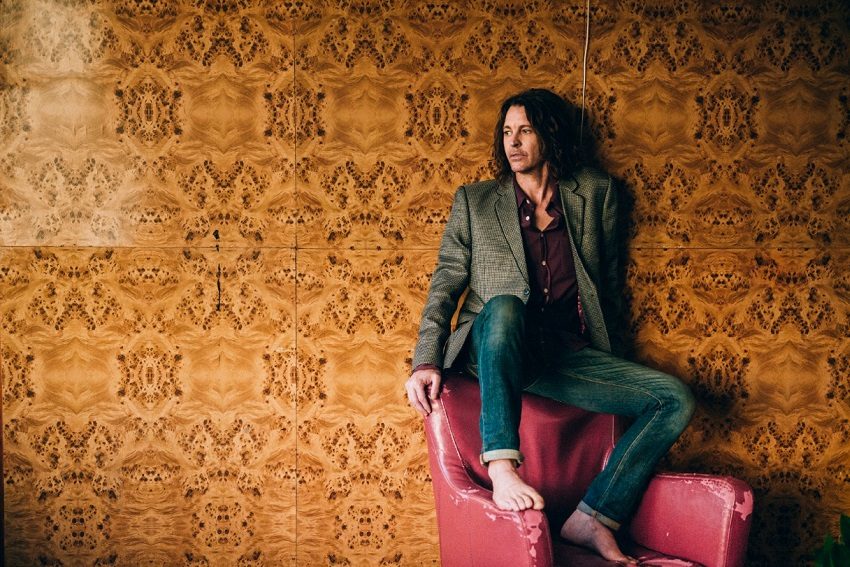Feel the Bern: Bernard Fanning on New Album, Politics and Powderfinger

Bernard Fanning sounds remarkably free. Since the dissolution of his nationally beloved day job, and now well past the pressures of passing the nerve-wracking “first post-Powderfinger album” milestone (Departures did those honours in 2013), Fanning’s third solo album Civil Dusk is a mix of uncluttered folk-rock arrangements and easily flowing songwriting.
It really just sounds like a 47 year old bloke named Bernard doing his thing. Admittedly, a bloke with a shelf full of ARIAs and more contenders for the title of ‘de facto national anthem’ than most.
“That’s pretty much it,” Fanning says of Civil Dusk’s relaxed birth. “I didn’t really have any agenda that I had to fulfil or anything like that. I just started writing, [and] it wasn’t until halfway through that I started looking at what I had and what themes were emerging. It’s very free of any boxes that needed to be ticked.”

“I was listening yesterday to an interview where Neil Young was talking about making records, and how for him the most important thing when you’re writing is to have no fear. And that’s true, you’ve got to remove any agendas, you’re just creating something.”
Lyrically Civil Dusk ruminates over familiar territory of relationships and personal upheaval, and of course it wouldn’t be a Fanning album without at least a passing comment on the State of the Nation. He delivers with album closer Belly Of The Beast, a frustrated indictment of our current political discourse and an “insipid and compliant press”.
“It’s pretty abysmal really, certainly in the political context,” Fanning sighs. “I think that really informs the social context as well, the things that you hear being said in the media day by day do influence the way people think and act. That’s what Belly Of The Beast points to, the idea that people have become so disinterested in politics because it sounds like the same thing being said over and over.
And often it is, to the insulting point that it becomes about the same three word slogans– stop the boats, ditch the tax, whatever.” With Powderfinger hitting the peak of their cultural influence around the height of the Howard years, I ask if it felt strange for the band to be so embraced by an Australian public that simultaneously voted for leaders and policies standing in stark contrast to the themes of their fist-pumping and lighter-waving anthems.
“I think the distinguishing thing with Powderfinger was that we weren’t telling people what to do,” he says. “We didn’t think it was a good idea to prescribe things, [but] we encouraged people to inform themselves. That’s what we were getting at most of the time… I mean, it was pretty clear what we stood for.”
Released as a single in 2001, Powderfinger’s Like a Dog stands as one of the band’s most politically-charged pieces.
“There were a lot of Powderfinger fans that were totally behind us, but it was more to those that weren’t who we were trying to communicate that idea to. [To] have a look at it from every side, not just the one you’re used to sitting on.”
A bit of empathy, perhaps? “Yeah, that’s right. And most of those things we were talking about, especially Indigenous Australia and the lack of opportunity that has been there for generations on generations, we started talking abut that in the 90s and it’s now 20 years later and the situation hasn’t changed. If anything it’s worse.”

It’s a salient point in light of the shockwaves that followed Four Corners’ recent Northern Territory expose, and the national tone of surprise that frustrated many long time advocates. After all, much of the abuse and ongoing problems had been on the public record, albeit without graphic imagery, for years.
“Yeah, and isn’t that incredible? That the key to making the shift is footage. Obviously the things that are happening on Nauru are horrific, but there’s no footage and that’s made a really telling difference.”
The power of imagery leads us to a surprising local connection, with Adelaide artist Karen Lynch piecing together the collages that forms Civil Dusk’s artwork. The story of their collaboration is an amusing example of our ever-shrinking online world.
“Karen is a collage artist who goes under the moniker of Leaf and Petal. My wife actually found some of her work online on a Spanish Instagram site and showed it to me. I absolutely loved it and called Karen, chatted to her about it and she was up for giving it a try.”
“What I love is that she uses old magazine stock and cuts together these images that generally have a human element in the foreground, they might be fishing or skimming stones, but in the background there’s this enormous cosmic event happening that they’re completely unaware of.
“I love how that tied in to the idea of Civil Dusk – which comes from the photography term of ‘civil twilight’, the golden hour when the sun disappears behind the horizon but you can still see everything and it makes for the most beautiful presentation.”
Civil Dusk is out now Bernard Fanning Norwood Concert Hall Wednesday, October 26 oztix.com.au